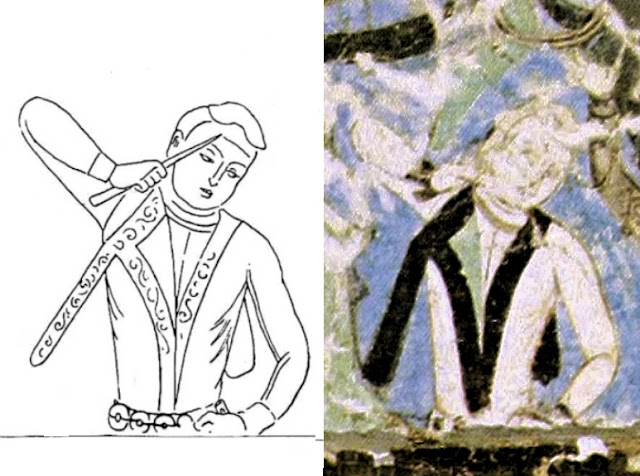I know you don't always have to zoom in on those who are suffering most, but when I went to contemplate people I don't know, today I thought about those oppressed groups worldwide. My first thought was the Uyghurs. I just want to focus on my own problems, but pushing myself to think about people I know little about, my mind went along the lines of Samantha Powers, and wondered if we could rally support to stop unfair persecution and genocide.
I saw this photo and read the caption: A possible Tocharian or Sogdian monk (left) with an East Asian Buddhist monk (right). A fresco from the Bezeklik Thousand Buddha Caves, dated to the 9th or 10th century (Kara-Khoja Kingdom).
Basically the Chinese rulers are not into multiculturalism and diversity, and feel that their culture should dominate and conquer other cultures (BBC). The above picture represents the opposite, a 9th century ethnic group related to the Uyghurs, in friendship with a Buddhist. "Since 2017 when President Xi Jinping issued an order saying all religions in China should be Chinese in orientation, there have been further crackdowns."
Check out this picture: Tocharian Prince mourning the Cremation of the Buddha, in a mural from Maya Cave (224) in Kizil. He is cutting his forehead with a knife, a practice of self-mutilation also known among the Scythians.





No comments:
Post a Comment